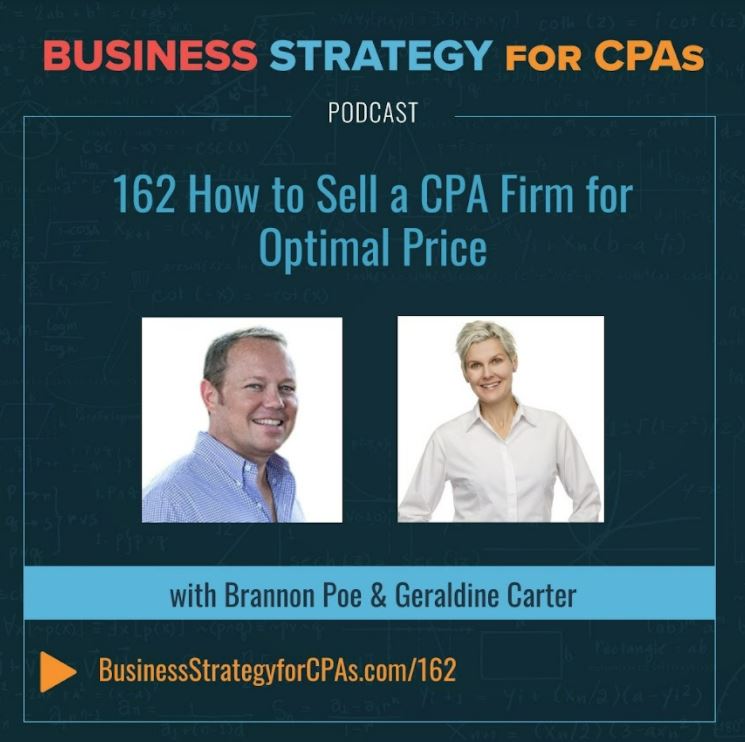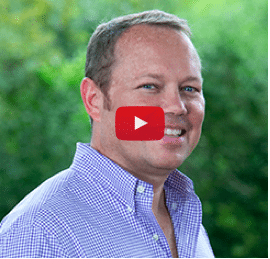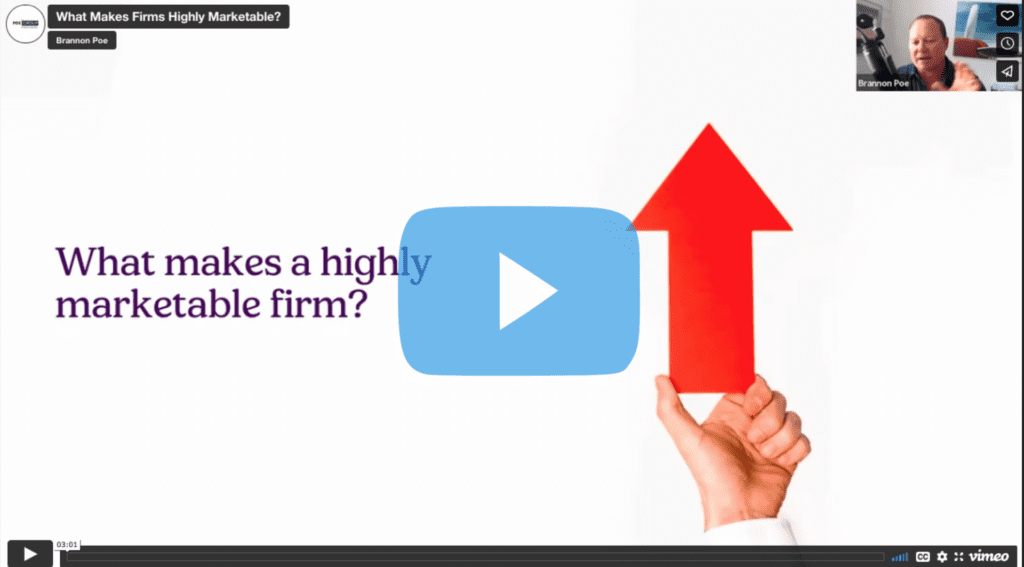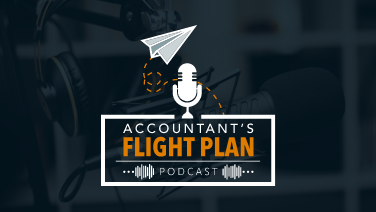A conversation on Cash-flow, Cloud Accounting firms, Multiples and Everything In between
Check out our latest podcast with Geraldine Carter on her show “Business Strategy for CPAs.” We discussed how building your practice as if you were going to sell it, is a good business strategy. Planning an exit long before you ever actually exit, builds a better, more profitable business. Geraldine and I dug into the biggest factors that contribute to firm value.
Please check out the full audio recording here.
Below is a synopsized version of our conversation takeaways:
Cloud/ Virtual Accounting Firm Value
One of the biggest contributors we have seen affect firm value and in turn, owner success, is by building a virtual accounting firm. A couple of years ago we noticed the trend of specialized accounting firms with a nationwide client base. We observed a few highly profitable firms with a narrow, but deep focus. This was accomplished with cloud-based software, and a way to serve clients virtually. This shift toward cloud accounting services was rapidly accelerated by COVID when in-person meetings with clients became more challenging. COVID made people aware that remote work with remote teams and clients was not only possible, but in fact is oftentimes better than traditional accounting business models.
The difference between a more traditional, localized firm, and a virtual firm tends to be an increase in salability. Cloud firms sell for a higher multiple on average. How much higher is still up for debate. (Geraldine and I spoke about why this is, and how lenders are currently influencing the multiples that are achievable in cloud accounting firm sales.) Just as in traditional accounting firms, one major driver that contributes to cloud firm value is profitability. Cloud firm owners tend to grow quickly and “growth eats cash.” The earned income during growth frequently gets put back into the business. In our discussion, Geraldine brought up a good question: Should firm owners in a growth phase plateau just before selling in order to show higher cash-flow margins?
Cash Flow to Owner
Cash flow to owner, owner hours and staff are big contributors to firm value. What we have noticed is that firms that are specialized tend to have higher profitability, though the percentage of how much higher is hard to quantify.
Ideally a firm will have above 50% cash flow to owner. That is very desirable and increases the odds that a firm will sell for a higher multiple. What we have also noticed is that firms with less than 25% cash flow to owner do not sell easily or for top dollar. The firms that sell well under that one-million-dollar gross revenue mark have a cash flow to owner between 35% and 80%. Higher cash-flow increases the odds that a firm will sell for more than 1x gross.
The more a firm makes over a million, or a million and a half, the more likely they are to have a lower cash-flow percentage, which is still very marketable as long as the take home pay is still relatively high compared to the total gross revenue. A common thread in those higher grossing firms is lower owner hours because they tend to delegate so much of the work. This often explains the lower cash-flow percentage.
To build value, you need a filter to take on new clients even if you are specialized, make sure you have good fees and good clients. Be selective. This narrowed approach will make you more money. (For more information about practice values, download our free CPA Practice Valuation Factors Report. )
We are Talking Multiples
You may be wondering, ok if I have a high-cash flow what kind of multiple can I get? To that, I say it really just depends. A 1x gross is industry standard, but you could sell for more or less depending on your circumstances. A very desirable firm (Our best so far sold at a 2x) would be in a great metro location, have above 50% cash-flow to owner, under 2000 annual working hours, a selective scope of services and ideally, cloud based.
Terms matter MOST. Your multiple doesn’t matter if you don’t have the correct deal terms. At Poe Group, we strive for 100% cash at close. This eliminates transition issues, and payment issues. You may speak to another broker who says they can get you on average a 1.5x gross. To this I say at what cost?
Most deals sold at a really high multiple will be on an earnout structure. In short that means you get paid out over many years based on how well your buyer retains clients. It’s a risk which in the end could mean you walk away with way too many hours still invested in the business and less than a 1X gross of your original profits in hand. Earnout deals stunt the buyer’s ability to control and grow the practice and they usually mean more work and less money for the seller. The financial incentives are misaligned.
Emotional Selling
When should you sell? That is a personal choice and I never try to influence when you should sell, just how. Selling can be an emotional experience when someone sells in order to retire. Retirement is a time in life that is very transitional. Ideally you want something pulling you out of the practice, like spending more time with grandchildren or travel. When people have a clear plan of what they are going to do after the sale of their firm, it is usually easier for them to let go. (Another reason you want a clean break with the proper deal terms)
What Buyers Want
When you have decided you want to sell, or that you want a firm that is saleable, you may wonder what buyers want. Younger buyers want work-life balance, meaning no more than 2000 working hours a year and they want that coupled with high profitability.
I always say to young buyers that they are going to initially work longer hours and that they will have a learning curve. They need to understand they will work more than normal in the beginning.
For our sellers we say cut owner hours, make the firm less reliant on them or reduce the workload of the firm.
Back in the day, buyers weren’t as concerned with owner hours, but now, it is a huge necessity. The generational clash of work expectations is driving this shift and I don’t think it’s bad. Sellers and buyers need to meet in the middle if a transition is going to be successful.
Sellers need to see the opportunity to work less and buyers need to understand when they initially take over a business, they are going to work more than they want.
Defining Low Owner Hours
Low owner hours at Poe Group are measured annually. Under 2000 hours a year is pretty good. A lot of owners work closer to 2500 annually and I would call that neutral, not great but alright. Firm owners working more than 2500 a year, now that’s a problem. That’s when buyers are not interested. ( To get your hours down, check out our free practice management e-book)
Final Words of Advice
Planning is not a waste of time. You make more money in the time you spend planning your own business than executing. Planning changes everything.
For the full conversation listen here on Geraldine’s podcast.
PS – Whenever you’re ready, here are 4 other ways we can help:
- Seller FAQ: Answers to the questions sellers are asking. From practice value, to timing, we’ve got you covered.
- Strategic Guide to Selling your CPA Practice Video: The how-to of selling a CPA firm.
- Accounting Practice Academy: If you’re looking for benchmarks, our 8-week workshop has a community of established firm owners that will help you get perspective, reduce your owner hours, and raise your bottom line. email ibrennan@poegroupadvisors.com with “APA” and we will fill you in on the details.
- If you want to chat about your exit strategy, email bball@poegroupadvisors.com with “strategy call” or request a call here.





